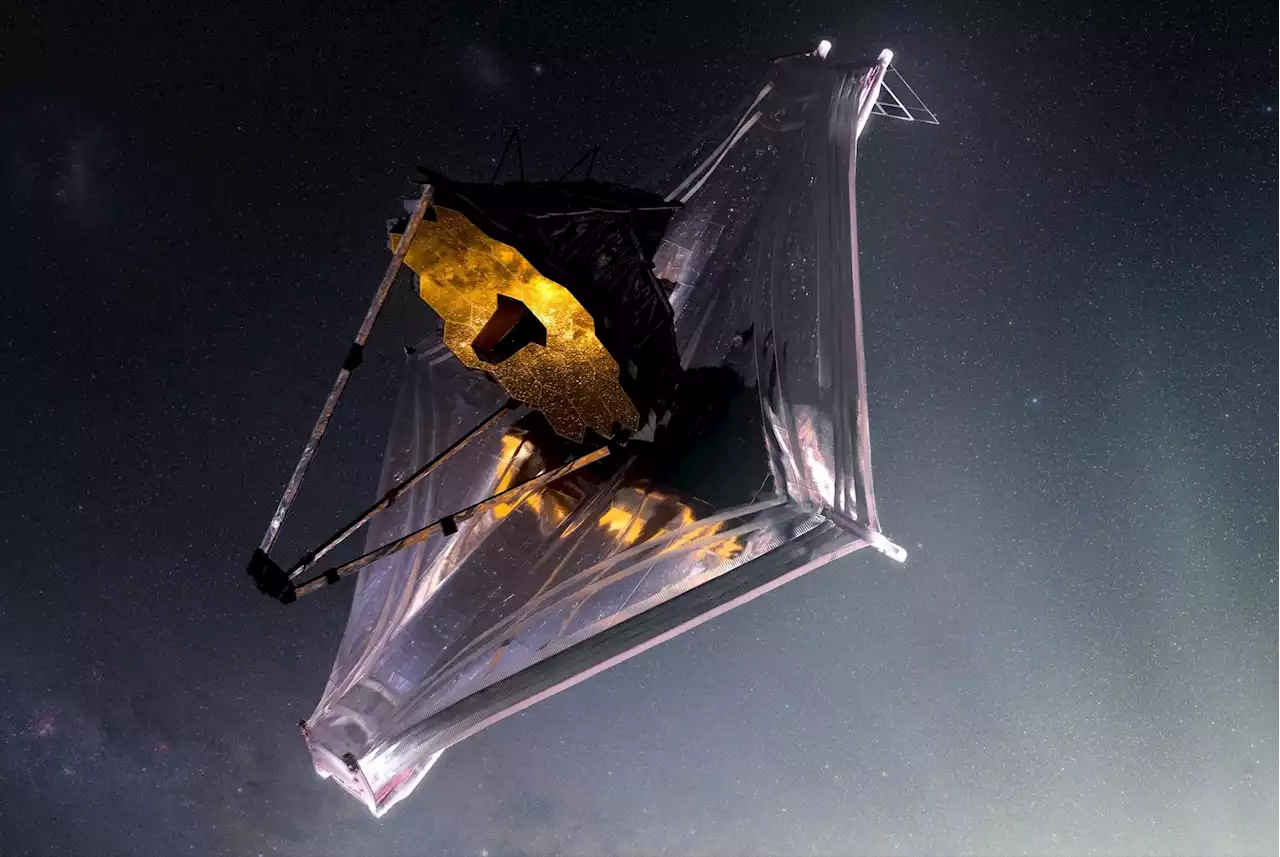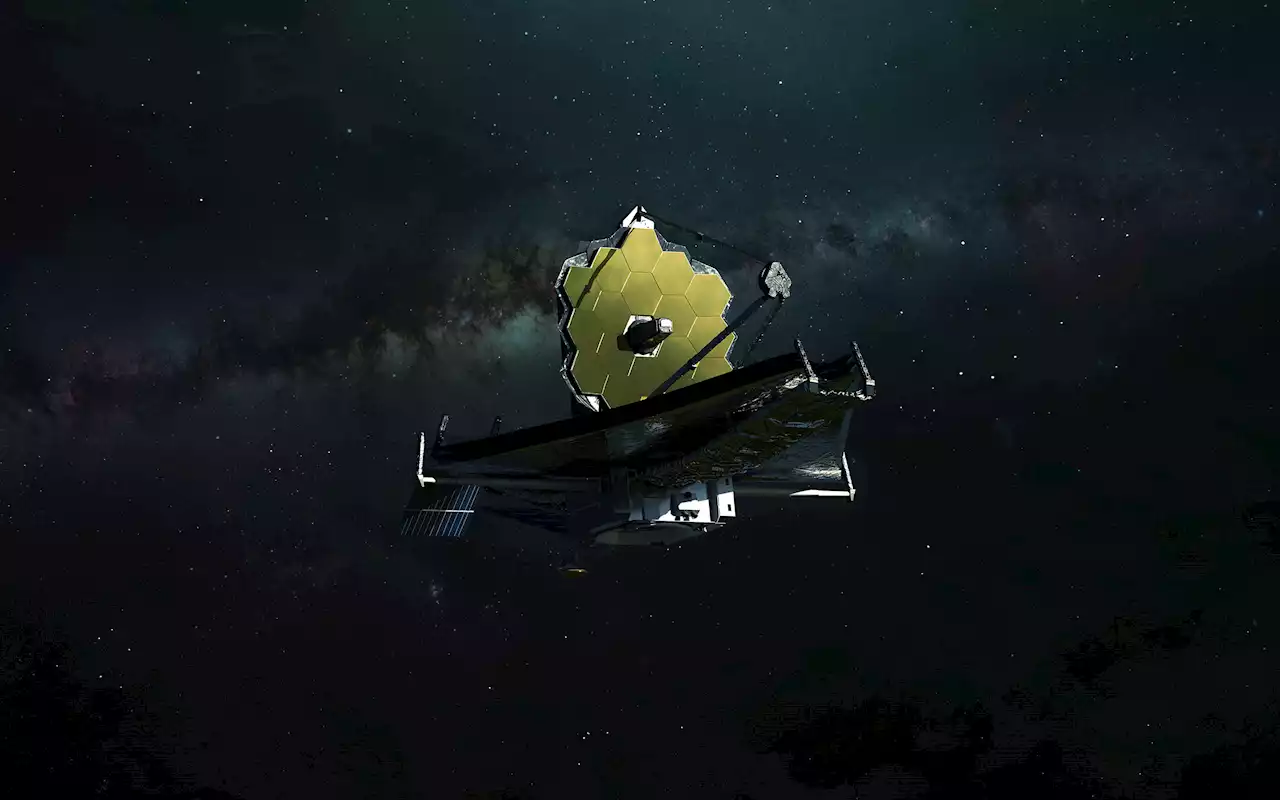Scientists may have figured out a way to make James Webb 'see' dark matter, allowing us to map out its distribution like never before.
biggest mysteries of the universe
. We’re pretty sure it exists, in fact, we’re pretty sure that it makes up a large majority of our universe. But we’ve never been able to see dark matter ourselves. That may change soon, though, as a trick with theWhen looking at things from an astrophysical standpoint, the effects of dark matter can be seen everywhere, from the way that galaxies rotate to the way light distorts around massive galaxies with gravitational lensing.
What makes this new technique so intriguing, though, is that it allows Webb to basically trace the distribution of dark matter. It uses a system known as intracluster light – which is basically when stars and tidal streams are stripped from within galaxies in clusters. These stars continue to shine, but they do so from the intracluster medium – a space between galaxies.
Scientists have previously used Hubble to check for intracluster light, and now, they’re doing it with Webb, as well. But what makes James Webb’s search for dark matter so promising is the sheer power of the telescope, and its ability to peer deeper into the universe than any other man-made telescope we’ve made thus far.essentially lets us trace out dark matter and map it out in ways that have never been possible before.
South Africa Latest News, South Africa Headlines
Similar News:You can also read news stories similar to this one that we have collected from other news sources.
 James Webb Telescope’s Unparalleled View of the Ghostly Light in Galaxy ClustersData obtained by the new James Webb Space Telescope was used by a recent study that has produced the most complete analysis to date of the intracluster light, the diffuse and faint light emitted by stars in galaxy clusters that are not gravitationally bound to any galaxy. The research gives new clue
James Webb Telescope’s Unparalleled View of the Ghostly Light in Galaxy ClustersData obtained by the new James Webb Space Telescope was used by a recent study that has produced the most complete analysis to date of the intracluster light, the diffuse and faint light emitted by stars in galaxy clusters that are not gravitationally bound to any galaxy. The research gives new clue
Read more »
 A fierce competition will decide James Webb Space Telescope's next views of the cosmosThe James Webb Space Telescope has had a busy first year in space, but astronomers are already bidding for research time in 2023.
A fierce competition will decide James Webb Space Telescope's next views of the cosmosThe James Webb Space Telescope has had a busy first year in space, but astronomers are already bidding for research time in 2023.
Read more »
 Scientists unlocked the secrets to bats' heavy metal growlsBats vibrate special vocal folds to produce low-pitched growls like those of death metal singers.
Scientists unlocked the secrets to bats' heavy metal growlsBats vibrate special vocal folds to produce low-pitched growls like those of death metal singers.
Read more »
 Scientists build a magnet in China that is a million times stronger than Earth's magnetic coreThe 45.22-tesla magnet sits just shy of the record for the world's most powerful magnet. It could help unlock new innovations including nuclear fusion.
Scientists build a magnet in China that is a million times stronger than Earth's magnetic coreThe 45.22-tesla magnet sits just shy of the record for the world's most powerful magnet. It could help unlock new innovations including nuclear fusion.
Read more »
 Scientists call for action to help sunflower sea starsScientists along the West Coast are seeking action to help sunflower sea stars recover from catastrophic population declines.
Scientists call for action to help sunflower sea starsScientists along the West Coast are seeking action to help sunflower sea stars recover from catastrophic population declines.
Read more »
 Scientists Have Developed a New, Better AntidepressantScientists have opened the door for a new class of fast-onset antidepressants. According to a recent study, a new small-molecule compound that regulates the firing of serotonergic neurons has a fast-acting antidepressant effect. The results pave the way for the development of a new class of treatme
Scientists Have Developed a New, Better AntidepressantScientists have opened the door for a new class of fast-onset antidepressants. According to a recent study, a new small-molecule compound that regulates the firing of serotonergic neurons has a fast-acting antidepressant effect. The results pave the way for the development of a new class of treatme
Read more »
